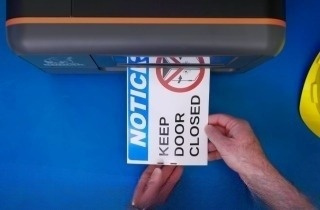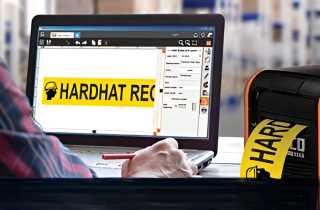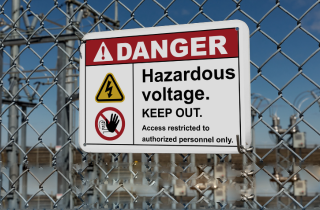6 Ways to Improve Office Safety in June, National Safety Month

There are over one million nonfatal occupational injuries and illnesses in the public sector every year, according to the Bureau of Labor and Statistics. Sitting for most of the day in a climate-controlled office might seem like a cush job in comparison to the physical demands of the industrial labor sector. However, these types of jobs still have dangers. According to the BLS report, 72,010 private sector office and administrative workers had an on-the-job injury. To help highlight safety for any worker, June is named by the National Safety Council (NSC) as National Safety Month.
Here are 6 smart fixes that can improve office safety
1. Avoid That Trip Next Fall
According to OSHA, the most common type of office injuries are slips, trips, and falls. Standing on improper ladders such as desks or chairs, and clutter in walkways, such as boxes and files, are some of the biggest culprits that lead to office injuries. Be vigilant of lose cords and other trip hazards. One easy way to improve organization, which is a keystone of safety, is by using the 5S system. 5S is one of several lean manufacturing tools. The first S of 5S is "seiri," which means tidiness in Japanese. Take the time to improve office efficiency and de-clutter for safety by using more 5S system tips in this free 5S system guide.
2. Don't Let Safety Slip
Slipping and sliding at work in no joke. To help prevent worker injury, it is important to reinforce safety on wet or slippery surfaces. Tile and marble are beautiful for office entryways, but they can also be the cause in sweeping people right off their feet. Ensure sturdy tread is in place that can withstand heavy foot traffic on slick walkways, ladders, and stairs. Remind workers of the importance of cleaning up spills promptly. When floors are wet, warn workers and other office visitors by using visual communication in the form of safety signs.
3. Open and Shut Case: the File Cabinet
Leaving file cabinets open may be temporarily handy, but when left open, they pose a danger for anyone walking in or around an office or cubicle. Remind workers to shut cabinets each time they're open so they don't pose a danger to anyone. Safely store and stack heavy items to help reduce the chance of an office injury.
4. Draw Attention to Emergency Exits
A recent study published by the American Psychological Association (APA) shows that people prefer to exit through the door they entered, which is true even in an emergency evacuation. Whether it's your first or 500th day of work, know the location of the closest emergency exit. In case of a power outage or other low-light situation, make sure emergency pathways, stairs, and doors are marked with glow signage. Lastly, the APA study also showed people won't take exits if they don't know where they lead, even in an emergency. So take workers on a tour or conduct periodic drills so they know exactly where the exits end, well before an emergency happens.
5. First Aid on the Double
Ever been guilty of "finding" a first aid kit, when it's been hanging on the wall behind you for months? Like the exits, make sure you know the location of first aid kits where you work. First aid kits are necessary for every office. Keep them well-stocked and clearly marked. Highlight their locations with floor marking and proper signage, too.
6. Be a Lifesaver at Work
Would you know how to help save a co-worker's life? For example, Ohio postal workers were eating lunch in their break room when one employee began to choke and lose consciousness. Two coworkers performed the Heimlich maneuver, while another called for emergency personnel. This quick thinking saved their colleague's life. Need to brush up on CPR or other live-saving skills? Take this eye-opening quiz from the American Red Cross.
Related Resources

Plan Ahead: Enhance Emergency Safety
Accidents will happen, and so can emergencies. As equipment and processes change, it's important to keep ...
Read
Do Not Miss a Step in Ladder Safety Training
A government study found that most workers say they have not been trained on how to use a ladder safely. ...
Read
Keep Exits Clear and Avoid Obstruction Violations
While it seems common sense to not block emergency exits, it happens; even if clutter seems only temporary. ...
Read.png)




